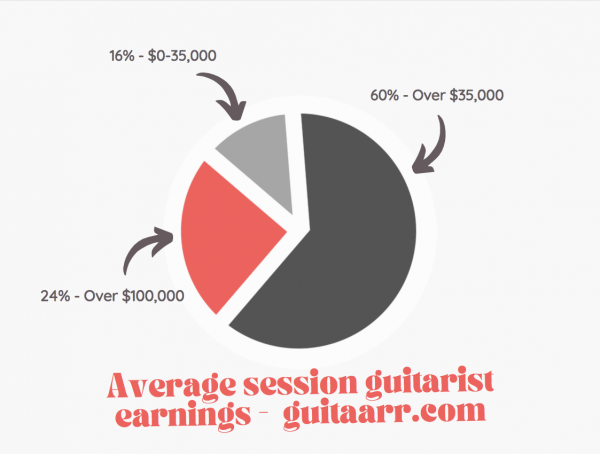This is often quite a controversial topic, and one that is incredibly subjective to a lot of musicians, boiling down to income, time, circumstance, and essentially what the individual musician wants to get out of learning to play the guitar.
At the end of the day, learning to play the guitar is like learning to do mostly anything. It takes hard work, dedication and a whole load of time, and of course a teacher or tutor will help to speed that process along. But that doesn’t mean that a teacher would be right for you. Let’s have a look at a few of the options when it comes to learning the guitar, including ways that you don’t have to rely on a tutor so you can make an informed decision about what will work best for you.
When to choose learning with a teacher
Going with a dedicated teacher to learn the guitar is ultimately going to be the more expensive route, especially if you’re cramming in lessons at the start. However, learning with a teacher can provide valuable experience, tips and insights at the start of your guitar playing journey that will save you time and money in the long run.
For example, having one-to-one lessons will allow you and your teacher to map-out exactly what it is you want to learn. If the teacher is any good, they will also then tailor your teaching to the genres and music styles that you want to learn (which will certainly keep you interested in the beginning phases, much more so than playing the same 3 chords week in, week out).
A personal teacher will also make sure that you do not pick up any bad habits when it comes to technique in the early stages, which will be habits that you may need to spend correcting later down the line. Much like a personal trainer, you will learn the correct technique from the start, so will not be worrying if you’re ‘doing it correctly’.
When it comes to pricing, this totally depends on location, and even your age. If you’re reading this and are a child in primary school or high school, there are usually school programmes that will provide guitar lessons for free as part of a music curriculum.
If you leave in a busy city and want a teacher to come to you, then you can expect to pay a lot more for their time, as they will also need to cover their overheads/rent living in a central location. This will also apply if you choose to have the teacher come and travel to you.
Pros of learning guitar with a teacher
- Tailored lessons, made to ensure that you stick with the guitar (if your teacher is worth their salt)
- Time saving implications, if the teacher can come to you
- You’re much more likely to learn proper technique from the start, which will save time
Cons and what to keep in mind
- One-to-one lessons and much more expensive than online options
- Can be time consuming if you need to travel to your teacher
- May become stagnant if you’re having group lessons, or get a bad choice of teacher (usually the cheaper options… as they say, you get what you pay for!)
And, when it comes to online guitar lessons, Samuel C Lees is the man you need to speak to.
Are online guitar lessons better than a teacher?
The other, most popular alternative, is to use online guitar lessons to begin your journey on the world of the guitar. Online guitar lessons have exploded in popularity in recent years, and even brands such as Fender have introduced their Fender Play online learning platform after realising just how lucrative the online lessons market has become.
Let’s face it, if you take the approach of deciding you ‘learn by yourself’, you’re still going to need a resource to lean on, otherwise how are you going to learn the basics? So whether that’s books, YouTube lessons, paid-for courses or even Skype lessons, it helps if you know what to look out for.
But, how do you choose the types of lessons that are right for you? And how can you be sure that you will get exactly what you need out of them?
Different platforms will specialise in different things, such as different genres or certain levels of technique. It helps to shop around, and do your research on the types of platforms that will work for you. For example, you may like the lessons offered by GuitarTricks online, but may prefer the simple layout of the Fender Play app. Consider the following to aid in making your decision:
- Does the online lessons also have an app, so that it’s possible to learn on the move?
- Is customer support offered with a paid-for version of the course?
- Are there multiple courses, sorted by ability, or is it ‘one course for all’ type of platform?
- Does the platform have the genres and types of music that you would actually be interested in learning?
- Does the platform cover basic music theory, technique and tips for beginners?
The above are just a few questions that we wished we’d asked ourselves before wasting money on courses that just weren’t right. Asking these questions now will save you time and money, which could be spent on the course or teacher that is right for you.
To sum this up, let’s look at it this way. If you have the time and the money, get a guitar teacher that will come to you. It’s a worthy investment, and you’ll be much more motivated to stick at it than if you were learning by yourself.
If you’re strapped for cash and time, online guitar lessons are the way to go. But again, get as many free trials as possible and do your due diligence. No two platforms or online lesson formats are the same, and you really do need to find the right set of lessons that will work for you.
More from Frequently Asked Questions
Can you play guitar with acrylic or long nails?
The short answer is yes, you can absolutely play the guitar if you have long nails, acrylic nails, fake nails... …
How Much Do Session Guitarists Earn? (2021 Poll Data)
There has been an argument for years now that the era of the session guitarist is long-gone. With nearly every …
How to protect your guitar from damage and theft
While your first guitar is unlikely to be worth more than a couple of hundred dollars, as you progress as …










